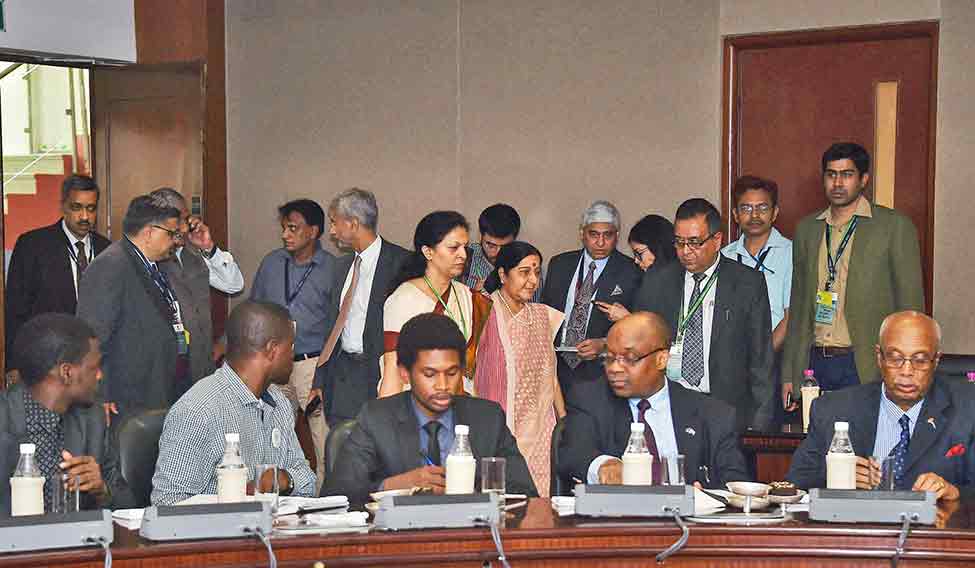The brutal killing of Masunda Kitada Oliver from Congo in south Delhi last month brought to the fore what has long been swept under the carpet—racism in India.
The death of Oliver was part of a series of incidents in which Africans were targeted. In February, a Tanzanian student was stripped and assaulted in Bengaluru. The Tanzanian High Commission sent a note verbale in protest and India promised to take action. Nine persons were arrested and the matter was subsequently forgotten, till Oliver was bludgeoned to death in a brawl on May 20. A week later, seven Africans were allegedly attacked in three separate incidents in Delhi.
While Minister of State for External Affairs V.K. Singh dismissed the attacks as “minor scuffles’’, the ministry worked overtime to reassure diplomats from Africa that it would deal with the problem head on. External Affairs Minister Sushma Swaraj met African students in Delhi and said, “As a mother, I can understand the pain of a mother who loses a son on foreign soil.” But, even as she assured them that they were safe in India, she denied that the incidents were prompted by racial prejudice. “India is the land of Gandhi and Buddha…. We can never have a racist mindset,” she said.
The refusal to acknowledge that it may be racial prejudice that resulted in the incidents has not gone down well with the African community. “I was disappointed when I came to India,” said Linda Owusu-Peasah, a student at Jawaharlal Nehru University. “I had expected India to be different, but the look on people’s face when they see someone from Africa is disappointing. We have a large Indian community in Ghana. We live amicably. But, in India, we are seen as aliens.”
Linda is not happy that a protest organised by the Association of African Students in India on May 31 was cancelled. The African diplomatic community had prevailed on the large student community to allow India to deliver on its promise of better policing. “It [the protest] was about getting our voice heard,” she said. “There may be high-level meetings, but we students feel the heat…. I don’t expect much to come out of these committees, especially if you have people saying that this is a minor scuffle. Unless you acknowledge that you have a problem, how will you deal with it?”
Racism is an issue that Africans in India face daily. Even diplomats say it is a serious problem. Now that the issue is out in the open, they believe they have the “ear” of the government at the “highest level”. “The acknowledgment of the issue by top politicians is in progress,” said a diplomat from Africa.
According to him, change will come, but slowly. “Students face this in America and Britain, too,” he said. “However, there are laws there to fight this. We hope that we will be able to prevail on India, too.”
On Africa Day on May 25, Sola Enikanolaiye, acting high commissioner of Nigeria, urged India to banish “prejudice” and “stereotypes” from the country. “Racism against black Africans in India is a major concern,” he said. The commitment to brotherhood and partnership, he said, would remain hollow unless Africans feel safe in India.
For now, foreign diplomats are willing to give India a chance to make amends. There is also a proposal for Narendra Modi to use his monthly radio address to deal with the issue. “The prime minister is aware,” said a diplomat. “We have been assured that he will deal with the problem.”







